China's growing influence on overseas Chinese businessmen: Reflections on the 16th WCEC in Bangkok
Lee Huay Leng, editor-in-chief of SPH's Chinese Media Group, notes that she seems to have witnessed a shift in focus while attending the recent World Chinese Entrepreneurs Convention in Bangkok - while earlier editions were targeted at bringing together ethnic Chinese businessmen scattered around the world, a changed world seems to have made the latest edition more China-centric, and it remains to be seen whether this will hold for future editions.
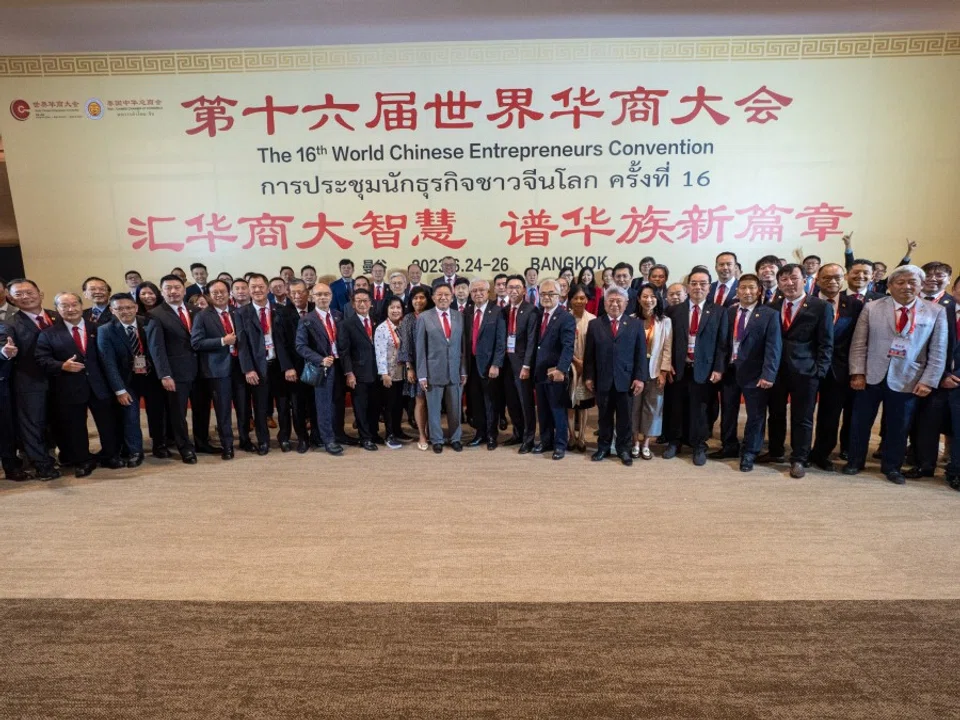
While attending a panel discussion on "Business Philosophy and Management Sharing for Chinese Entrepreneurs" at the 16th World Chinese Entrepreneurs Convention (WCEC) held in Bangkok, I sat next to a British gentleman. I asked this "ang moh" (Caucasian, or non-ethnic Chinese) why he chose to attend this session, and he explained that he invests in real estate and financial technology in the UK, and has Chinese business partners and wanted to gain a deeper understanding of them. I noticed that he wasn't wearing headphones for simultaneous interpretation, and recalled that he mentioned before the session began that he had studied Chinese in Taiwan.
Over two days at the bustling Queen Sirikit National Convention Center, there were few Caucasians like this British businessman. Apart from the friendly and enthusiastic Thai staff, the majority of the 4,500-plus attendees in the venue were ethnic Chinese, including about 1,800 Thai entrepreneurs and 1,500 people from China.
At the opening ceremony, with rows of sofas in the front and tables and chairs arranged behind them, I felt like I was at a conference in a Chinese city.
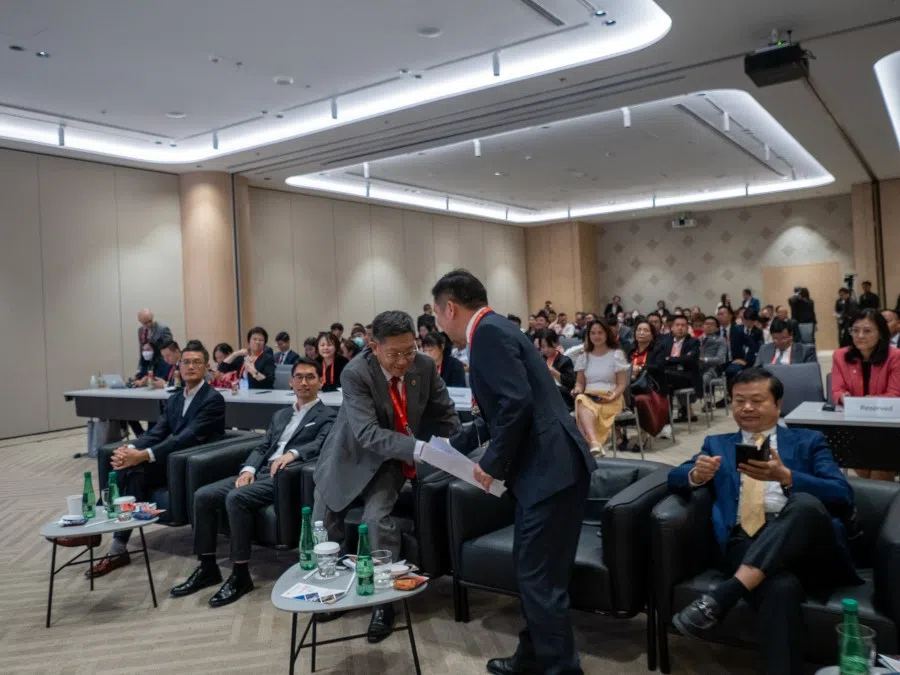
I spoke with a private entrepreneur from a fifth-tier city in China, who was very interested in the situation abroad. He asked detailed questions, including about external views on China's domestic economic situation. Besides representatives from various local chambers of commerce and industry in China, there were approximately 1,200 "overseas businessmen" attending the conference, including new immigrants from China to North America, Europe, the Middle East, Latin America, Southeast Asia, Australia, as well as ethnic Chinese who have settled in Southeast Asia for several generations.
Original intention was to create a non-political platform
The welcome dinner and opening ceremony mainly featured speeches by representatives from the host country and several Chinese officials. The national anthems of both countries were played; it felt like a Thailand-China bilateral event. At the opening ceremony, with rows of sofas in the front and tables and chairs arranged behind them, I felt like I was at a conference in a Chinese city.
Like some other global Chinese organisations (such as The Chinese Language Press Institute), the WCEC was initially founded with the aim of being "Chinese" but not exclusively "Chinese" - highlighting Chinese values and being concerned with China's development, while also maintaining an appropriate distance from the Chinese government. The format and agenda of the conference are not influenced by Chinese "guidance".
Speaking at the WCEC opening ceremony, Kho Choon Keng - president of the Singapore Chinese Chamber of Commerce & Industry - talked about the reasons for the event's success over the years, going back to its original intention of creating a non-political platform to bring together ethnic Chinese businessmen scattered around the world, strengthening economic cooperation, and promoting mutual understanding.
The event was organised by the Singapore Chinese Chamber of Commerce & Industry in August 1991, and the Founding Members Board was established in 1993, including the Chinese chambers of commerce in Hong Kong, Thailand, and Singapore. In 1999, the Secretariat was established to "ensure the continued coordination and planning of the biennial WCEC".
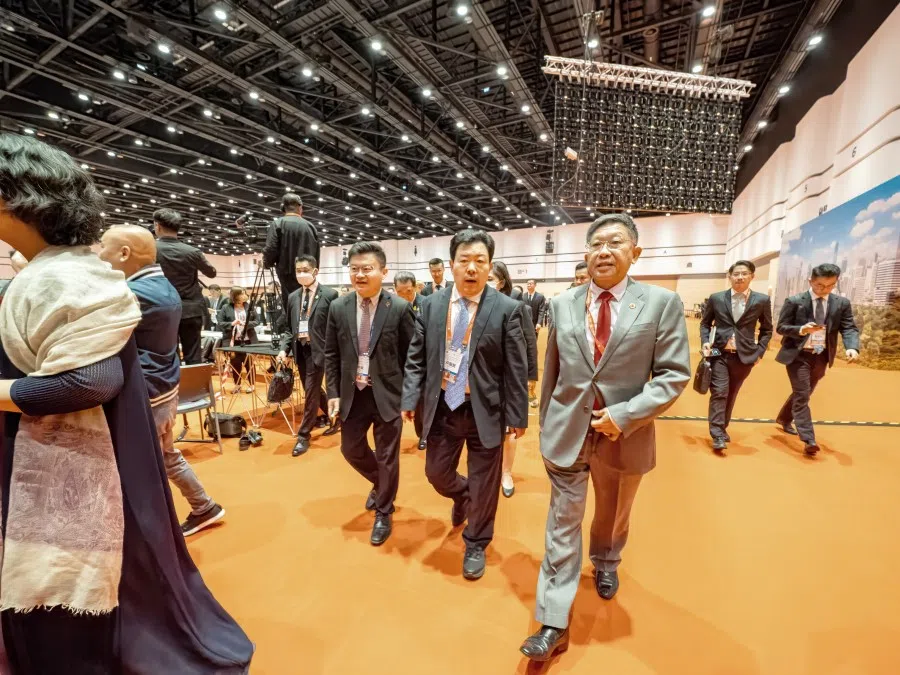
Looking at the previous years' programmes, besides leaders of the host country and leading entrepreneurs, the WCEC also invites outstanding Chinese scholars to deliver speeches on technology, society, culture, and history, showcasing openness and diversity.
Professor Chang-Lin Tien, former chancellor of the University of California, Berkeley, Professor Tu Weiming from Harvard University, and Rong Yiren, former chairman of China International Trust and Investment Corporation and vice-chairman of the standing committee of the 7th National People Congress, were all headliners at the first WCEC. Singapore's founding Prime Minister Lee Kuan Yew was also a strong supporter, speaking at the first WCEC and attending subsequent sessions in Hong Kong, Canada, and Australia. Notable figures who have shared their wisdom at the congress include historian Wang Gungwu, economist Wu Jinglian, Lenovo founder Liu Chuanzhi, and Acer Group co-founder Stan Shih.
When the WCEC was held in Nanjing in 2001, as the host country, China showed its charm by offering full support while showing the utmost respect for the WCEC. Chinese Premier Zhu Rongji, chairman of the National Committee of the Chinese People's Political Consultative Conference Li Ruihuan, Vice Premier Qian Qichen, Minister of Foreign Trade and Economic Cooperation Shi Guangsheng, and Governor of the People's Bank of China Dai Xianglong all participated, sharing insights on this platform alongside other Chinese businessmen from countries and regions such as the US, France, Australia, Hong Kong, and Taiwan. Vice-Premier Liu He, who has just stepped down as vice-premier, gave a speech at the time about "The Dependencies and Real Challenges of China's New Economic Development" in his capacity as executive deputy director of the State Information Center.
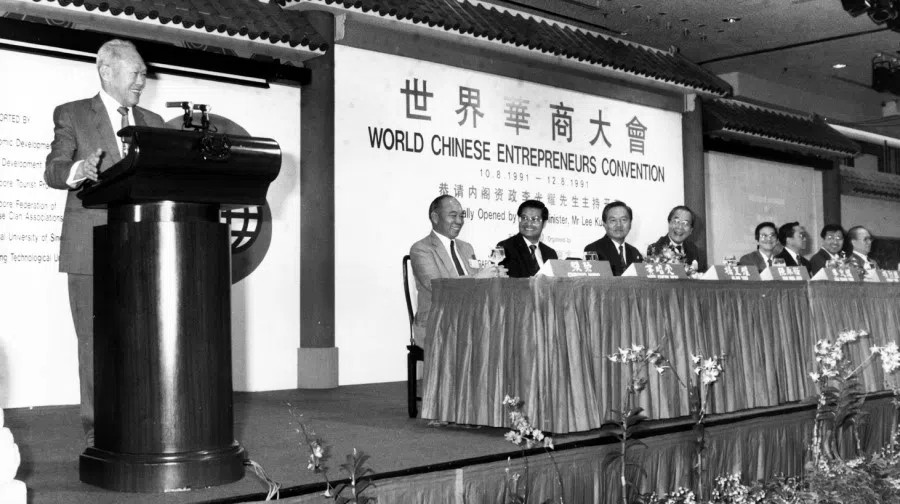
A changed environment
After 32 years, both the global situation and original intention of the WCEC have changed significantly. Dhanin Chearavanont, senior chairman of Thailand's Charoen Pokphand, said at the opening ceremony that Japan's past investments and technical assistance to Southeast Asia, especially Thailand, have contributed to Thailand's economic success today.
However, he also pointed out that China has now become the world's second-largest economy; its population of 1.4 billion people, along with the total populations of Japan, Korea and ASEAN, have made the regional market massive and prominent.
Chearavanont, who is also the president of the China Overseas Chinese Entrepreneurs Association, pointed out that China has become a technologically advanced country. At the same time, Chinese President Xi Jinping's Belt and Road Initiative, which advocates extensive consultation, joint contribution and shared benefits in global governance, and the proposal of a "community with a shared future for mankind", offers many opportunities that Chinese entrepreneurs should seize.
The "reality" that Chearavanont mentioned, when put together with Kho's reminder of the "original intention" of the WCEC, provides much food for thought. In 1991, the world doubted whether China was firmly on the path of reform and opening up. When Singapore's late founding prime minister Lee Kuan Yew spoke at the convention, he told roughly 800 Chinese entrepreneurs from over 30 countries and 72 cities, "Indeed just by being ourselves, making progress in our lives, Chinese abroad become a powerful pull factor in China's evolution forward."
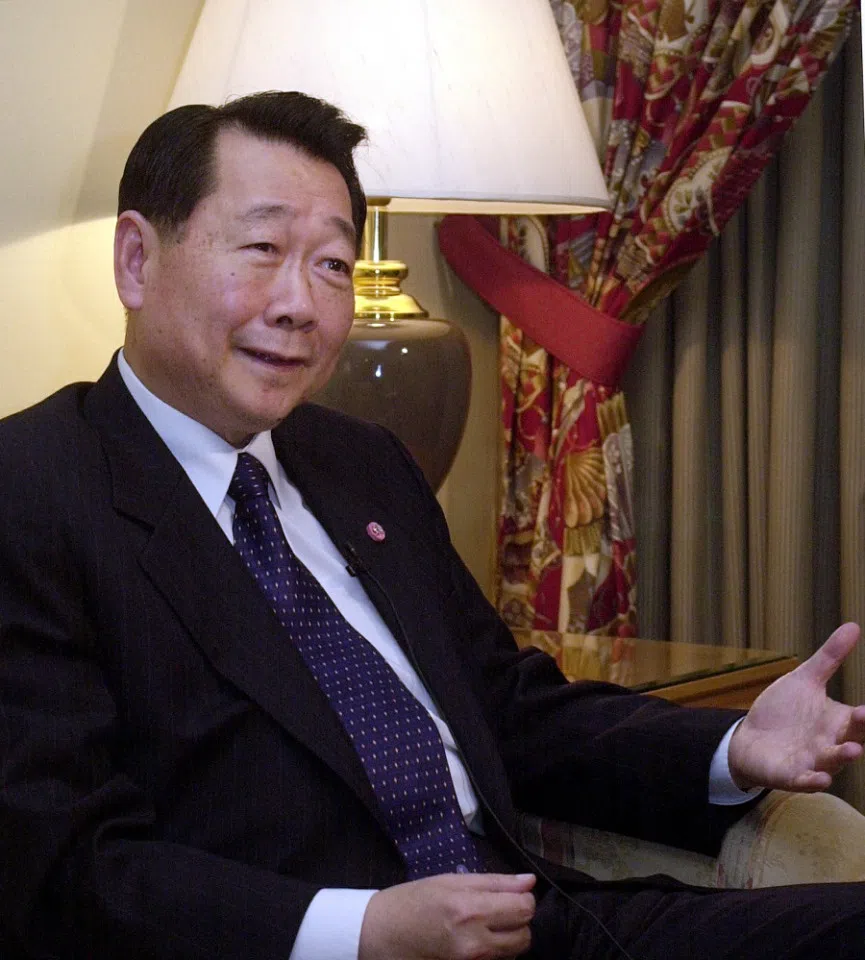
Back then, overseas Chinese were seen as role models. These overseas Chinese businessmen who maintained their Chinese cultural values and managed to integrate into the communities they moved to, and not only that, who made a name for themselves in varied business environments, gaining experience and building up wide contact networks, were a precious resource for a China that wanted to connect with the world back then.
... Chinese businessmen are talented and entrepreneurs from various parts of China are growing in number; it is only a matter of time before they become the main body of the WCEC. How will these factors change the WCEC?
Today, China's rapid rise and its massive market have become powerful pull factors. The WCEC was originally dominated by overseas Chinese who left China in the late 19th century and settled down in various parts of the world. While they participated in China's economic development in the early stages of China's reform and opening up, China may now be their most important market and even the one they are most reliant on.
Business people are pragmatic people; the relationship between Chinese entrepreneurs and China will certainly be recalibrated. At the same time, Chinese businessmen are talented and entrepreneurs from various parts of China are growing in number; it is only a matter of time before they become the main body of the WCEC. How will these factors change the WCEC?
Upholding values for diversity and openness
Kho mentioned the spirit of "harmony in diversity" (和而不同) at the opening ceremony of the WCEC as Chinese entrepreneurs must not only respect and accommodate the differences among Chinese entrepreneurs but also consider the feelings of different communities in their respective countries and societies. This ethos is deeply understood by overseas Chinese but also the least understood.
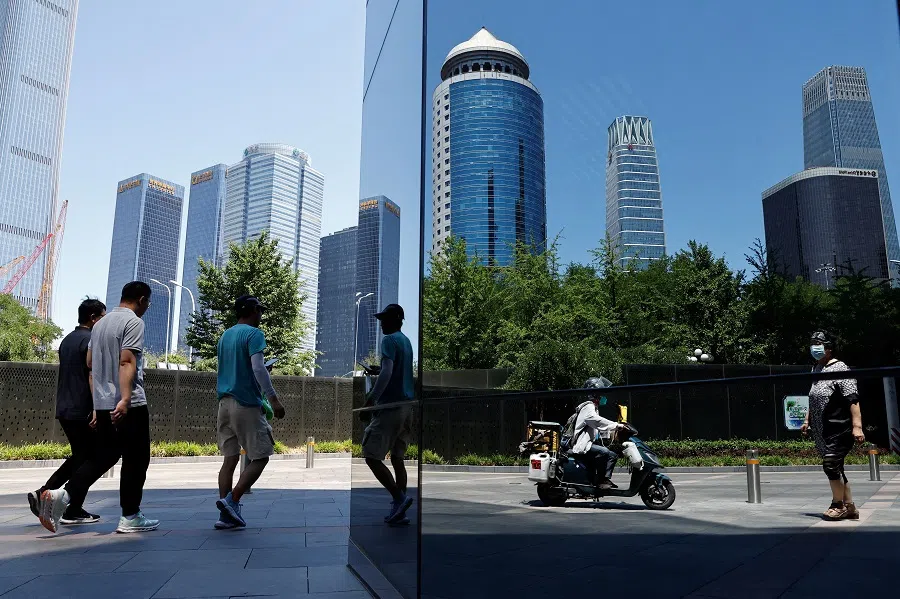
In chairman of the Chinese People's Political Consultative Conference Wang Huning's congratulatory letter to the WCEC, he mentioned that the world was experiencing great changes unseen in a century. Not only that, geopolitical pressure on the commercial economy has risen sharply, the effects of which can be most keenly felt by Chinese entrepreneurs.
Various parties should weigh the value and significance of the WCEC, as well as whether these continue to uphold the word "world" and neutrality in terms of form and agenda...
Amid the new situation in the new era, if the WCEC continues to promote the spirit of learning from each other and mutual respect among Chinese entrepreneurs, while making full use of its "unique advantage of being in tune with China and the world" and making good use of its business networks and close relationships with non-Chinese entrepreneurs, this is a plus for China.
Given the strength of its economic power today, it is not difficult for China to lead the WCEC as some Chinese entrepreneurs may even proactively reach out to Chinese officials to "sinicise" the WCEC. Various parties should weigh the value and significance of the WCEC, as well as whether these continue to uphold the word "world" and neutrality in terms of form and agenda, so that the convention displays openness and diversity and wins points for both the WCEC and China. Expertly doing so will require the exceptional wisdom of all parties.
This article was first published in Lianhe Zaobao as "世界华商大会遇上百年未有之大变局".
Related: China's consumers flush with cash, but recovery is still lagging | Hong Kong youths head to mainland China's GBA to realise entrepreneur dreams | Local governments' tussles for investments chided by Chinese state media | Jack Ma has returned but Chinese entrepreneurs will still have a hard time
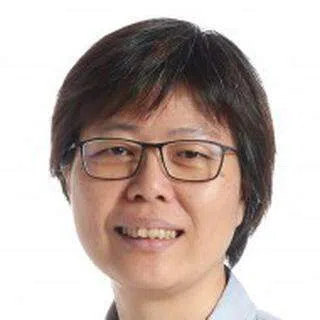
![[Big read] Paying for pleasure: Chinese women indulge in handsome male hosts](https://cassette.sphdigital.com.sg/image/thinkchina/c2cf352c4d2ed7e9531e3525a2bd965a52dc4e85ccc026bc16515baab02389ab)



